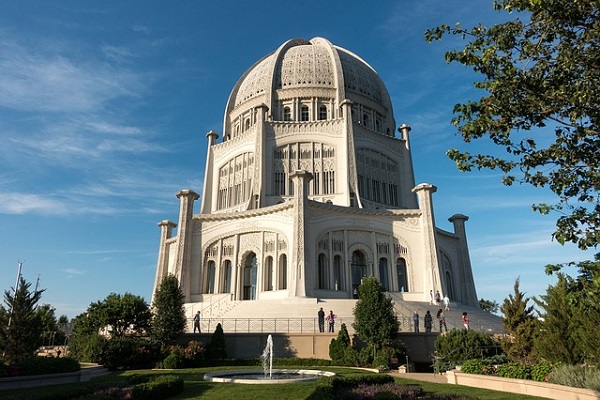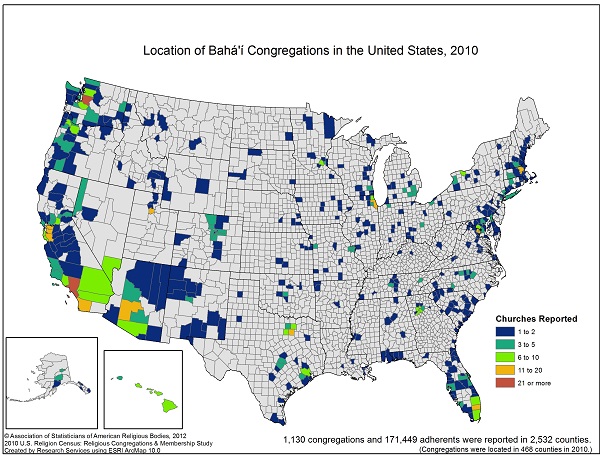
Surprise! The 2nd Most Popular Religion in South Carolina is Baha’i Faith
- By C Barnett --
- 21 Nov 2017 --

The rise of Baha’i is inextricably linked with the U.S. Civil Rights movement.
When it comes to religious matters in South Carolina, it is no surprise Christianity dominates. The surprising fact is the religion which follows in popularity is not Judaism or Islam: it is the Baha’i Faith. As per findings of the Association of Statisticians of American Religious Bodies, about 18,000 Baha'is practice their faith in the state. The organization conducts its religious census every 10 years.
New Study Reveals 2nd Most Popular Religion in South Carolina is Baha’i Faith[/tweetthis]
The expansion of the Baha'i faith began during the 1960s and the 1970s. The Baha'i communities started to increase their strength in the state of South Carolina concurrently with the Civil Rights Movement. Documented history exists of teaching conferences being held in Beaufort, Frogmore, and also at Penn Center, St. Helena Island. The ASARB recorded about 18,000 adherents and about 22 congregations within South Carolina. The religion even has its own radio broadcast station-the aptly named Radio Baha'i, transmitting at WLGI 90.9 FM. This station is located in Hemingway, a little to the west of Myrtle Beach.
The growth of the Baha'i and the Civil Rights Movement are inextricably linked. The leaders of the faith started to make honest efforts to attract African-Americans into the fold from the early 1960s. The rising popularity of civil rights was in perfect tandem with people getting attracted to the core values of Baha'i: oneness of humanity along with embracing diversity.

Would you believe Baha'i is supposedly the 2nd largest religion in South Carolina?
— L.F. Owls (@CLindberghGore) August 8, 2017
It was observed that teams of Baha'i, mostly African-American themselves, visited almost every resident preaching a message of unity of all religions, humanity, and God. They proclaimed that Baha'u'llah, the founder of Baha'i, is the return of Christ. Robert Stockton, a historian specializing in researching the Baha'i faith in the United States, said that the response to the message was enthusiastic. People listened closely to what the proponents of the new faith had to say, and since there was no chance to enroll people to the Baha'i faith in the first time, there were promises of a follow-up. Sadly, these follow-ups never occurred. The only consolidation activity which occurred was the setting up of the radio station.
The lack of consolidation means that as in 2017, only 4,500 Baha'is have their correct addresses in the Baha'i database. It is clear that the remaining members are insufficiently active to update the address when they went from one residence to another residence. Thus there is a distinct possibility that the number of Baha'i in South Carolina could actually be higher.


















